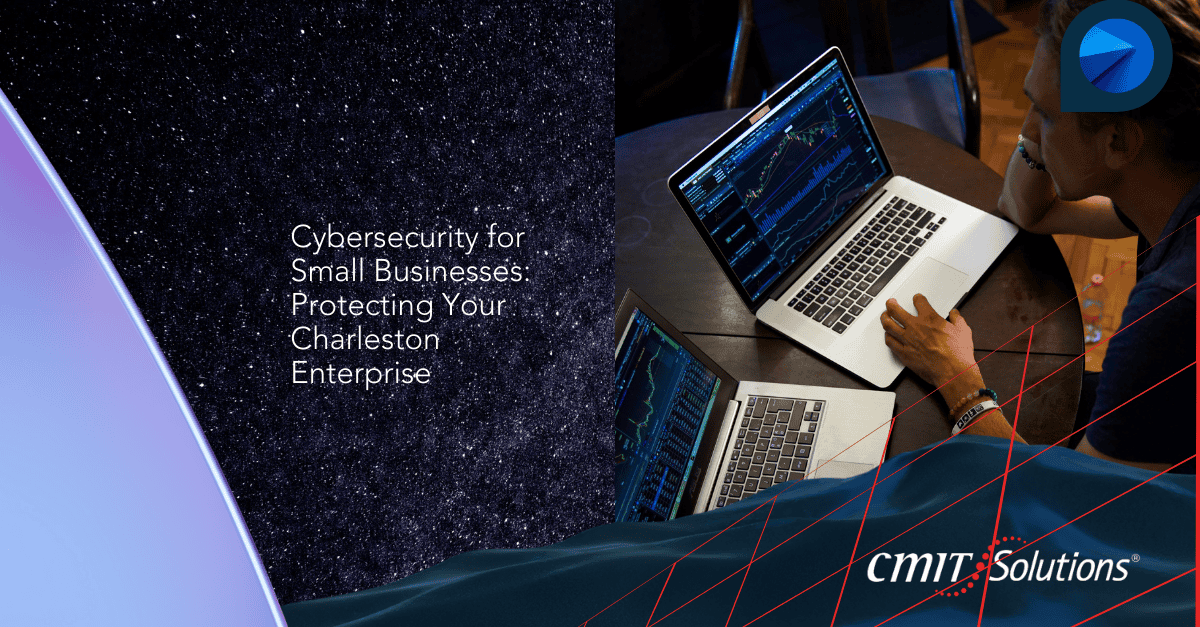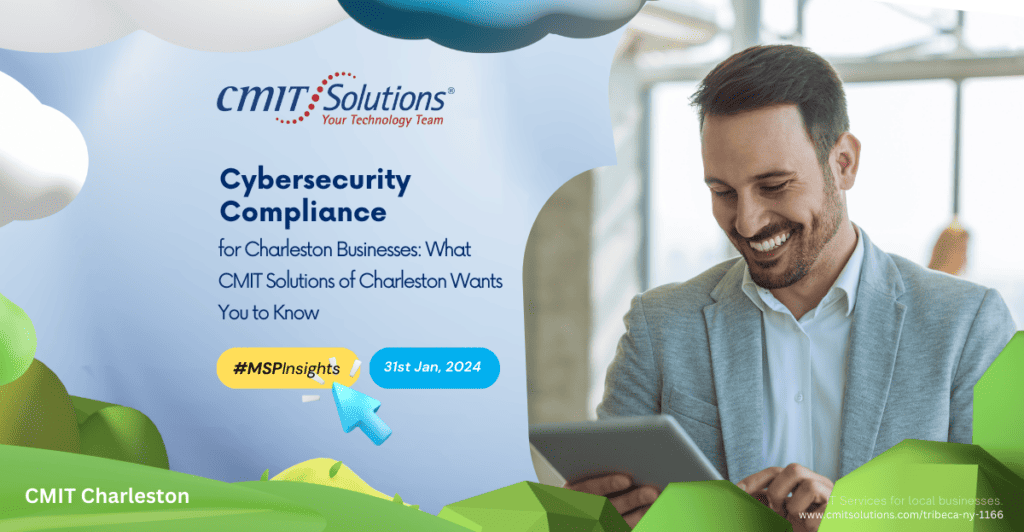In today’s digital age, cybersecurity has become a critical concern for businesses of all sizes. Small businesses in Charleston are particularly vulnerable to cyber threats due to limited resources and often less sophisticated security measures.
Understanding the Cyber Threat Landscape
Cyber threats are constantly evolving, and understanding the current landscape is the first step in protecting your business. Small businesses often fall victim to attacks like phishing, ransomware, and malware. Attackers exploit vulnerabilities in software, hardware, and human behavior to gain unauthorized access to sensitive information.
Phishing attacks, for instance, use deceptive emails to trick employees into revealing passwords or financial information. Ransomware encrypts a company’s data, demanding a ransom for the decryption key. Malware can infiltrate your system and cause various forms of damage, from data theft to system disruption.
Implementing Strong Password Policies
Strong password policies are a fundamental aspect of cybersecurity. Weak passwords can be easily guessed or cracked by attackers using brute-force methods. Ensure that all employees use complex passwords that include a mix of letters, numbers, and special characters. Regularly update passwords and discourage the use of the same password across multiple accounts.
Additionally, consider implementing two-factor authentication (2FA). This adds an extra layer of security by requiring a second form of verification, such as a code sent to a mobile device, making it much harder for attackers to gain access even if they have the password.
Employee Training and Awareness
Human error is a significant factor in many cyber incidents. Regular training and awareness programs can educate employees about the latest threats and how to avoid them. Topics should include recognizing phishing emails, the importance of strong passwords, and safe internet practices.
Conduct simulated phishing attacks to test employee vigilance and provide feedback. Make cybersecurity a part of the company culture, emphasizing its importance through regular communication and updates.
Securing Your Network
Network security is crucial for protecting your business data. Ensure that your Wi-Fi network is secure by using strong encryption methods such as WPA3. Segregate guest Wi-Fi from the main business network to prevent unauthorized access.
Use firewalls to block unauthorized traffic and intrusion detection systems (IDS) to monitor and alert you to suspicious activities. Regularly update all network devices, including routers and switches, to patch vulnerabilities.
Data Backup and Recovery
Regular data backups are essential for recovering from a cyber attack or system failure. Implement a robust backup strategy that includes daily backups of critical data. Store backups in multiple locations, including offsite or in the cloud, to protect against physical damage to your premises.
Test your backup and recovery process regularly to ensure that you can quickly restore data in the event of an incident. Consider using automated backup solutions to minimize the risk of human error.
Protecting Against Ransomware
Ransomware is a growing threat to small businesses. To protect against it, ensure that all software and systems are regularly updated with the latest security patches. Use reputable antivirus and anti-malware software to detect and block ransomware before it can execute.
Train employees to recognize suspicious emails and avoid downloading attachments or clicking on links from unknown sources. Implement network segmentation to limit the spread of ransomware if an infection occurs.
Implementing Access Controls
Access controls restrict who can access sensitive information and systems. Use role-based access control (RBAC) to assign permissions based on an employee’s role within the company. This ensures that employees only have access to the information necessary for their job functions.
Regularly review and update access permissions, especially when employees change roles or leave the company. Implementing 2FA can also enhance access control by requiring additional verification.
Ensuring Physical Security
Cybersecurity isn’t just about protecting digital assets; physical security is equally important. Ensure that all hardware, such as servers and workstations, is stored in secure locations. Use locks and access controls to prevent unauthorized individuals from accessing sensitive equipment.
Implement security cameras and alarms to monitor and protect your premises. Ensure that all employees are aware of physical security protocols and report any suspicious activities.
Developing an Incident Response Plan
An incident response plan outlines the steps to take in the event of a cyber attack. Having a plan in place can minimize damage and ensure a quick recovery. Your plan should include procedures for identifying and containing the breach, eradicating the threat, and restoring systems and data.
Assign specific roles and responsibilities to team members and conduct regular drills to ensure everyone knows what to do in an emergency. Review and update your plan regularly to account for new threats and changes in your business operations.
Partnering with Managed IT Services
Managed IT services can provide small businesses with expert cybersecurity support. Partnering with a managed service provider (MSP) like CMIT Solutions of Charleston can give you access to advanced security tools and the expertise needed to protect your business.
MSPs can monitor your systems 24/7, manage updates and patches, and respond quickly to incidents. They can also help you develop and implement comprehensive cybersecurity strategies tailored to your specific needs.
Conclusion
Cybersecurity is an ongoing process that requires vigilance, education, and the right tools and strategies. By understanding the threat landscape, implementing strong security measures, and partnering with experts, small businesses in Charleston can protect their valuable data and maintain their reputation in the face of evolving cyber threats. Investing in cybersecurity is not just a necessity but a crucial component of long-term business success.





